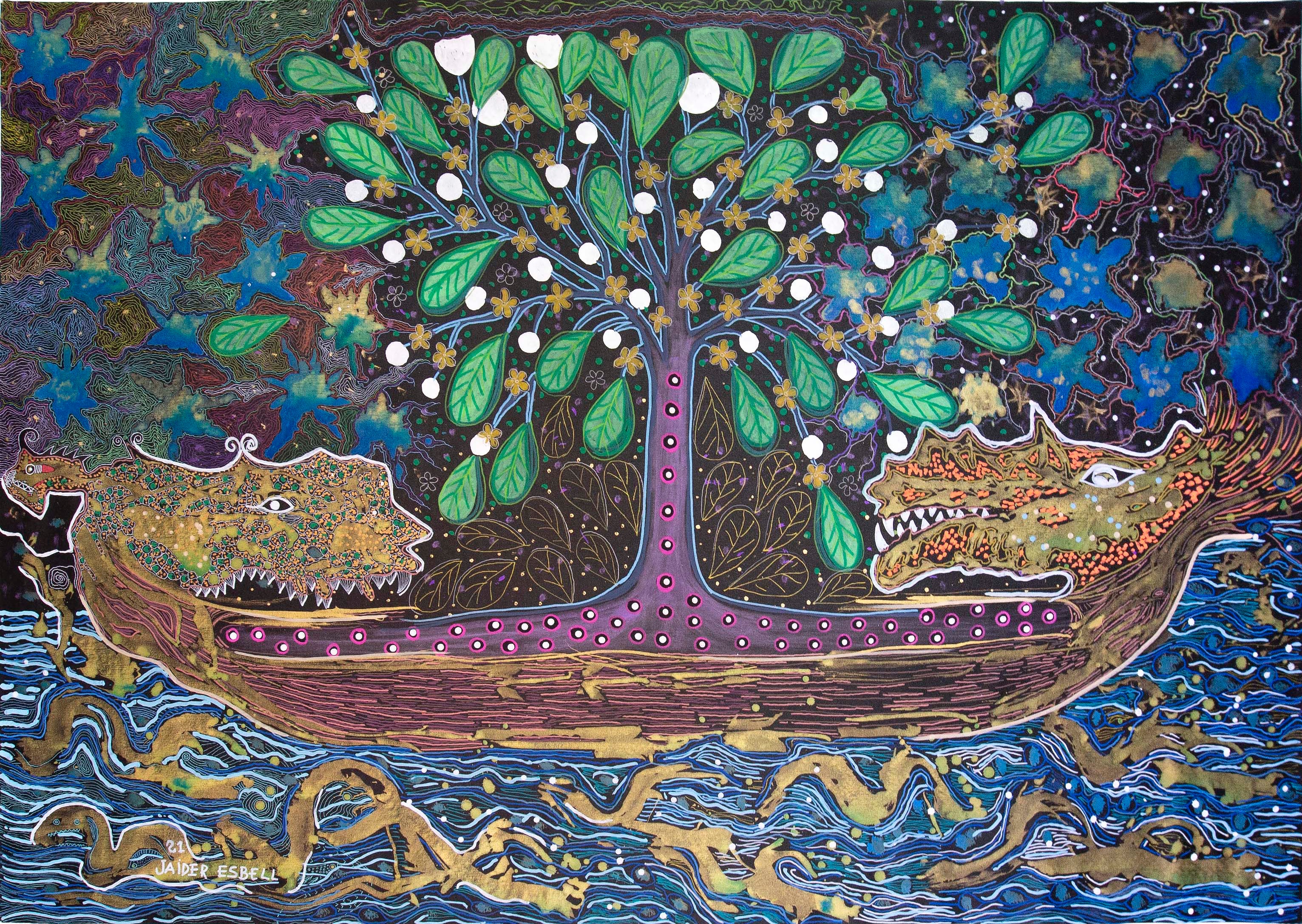O Branco estrangeiro Contra-antropologias amazônicas do capitalismo colonial
Main Article Content
Abstract
A antropofagia, a deglutição do estrangeiro, enquanto relação fundamental com a alteridade predatora e potencialmente afim, que visa se metamorfosear no outro com o objetivo de traduzir, conhecer e prevenir a ameaça que constitui a humanidade que ele atualiza, é o modo próprio da contra-antropologia amazôniza — isto é: a antropologia dos Brancos praticada pelos povos da floresta, forçados, pela violência do contato colonial prolongado, à objetivar e tentar compreender a invasão de seus mundos pela ordem estéril do capitalismo europeu, para resistir a ela e, numa certa medida, transfigurá-la. O artigo procura analisar dois exemplos
significativos dessa ingestão contra-antropofágica da branquitude (whiteness) — isto é, da reflexividade de uma humanidade especista e escravista: o mito de Jurupari, no noroeste amazonense, e o culto de Tenkowa, na Guiana francesa.
Downloads
Article Details

This work is licensed under a Creative Commons Attribution-NonCommercial 4.0 International License.
Authors who publish in this journal agree to the following terms:
Authors maintain the copyright and grant the journal the right of first publication, the work being simultaneously licensed under the Creative Commons Attribution License which allows the sharing of the work with recognition of the authorship of the work and initial publication in this journal.
Authors are authorized to take additional contracts separately, for non-exclusive distribution of the version of the work published in this journal (eg publish in institutional repository or as a book chapter), with acknowledgment of authorship and initial publication in this journal.
Authors are allowed and encouraged to publish and distribute their work online (eg in institutional repositories or on their personal page) at any point before or during the editorial process, as this can generate productive changes as well as increase the impact and the citation of the published work.
References
ALBERT, Bruce. “La Fumée du métal. Histoire et représentation du contact chez les Yanomami”, in L’Homme, n°106-107, 1988.
ANDRADE, Oswald de. Manifeste anthropophage, 2011, BlackJack éditions.
BONILLA, Oiara. “Parasitism and subjection. Mode of Paumari Predation”, in M. Brightman, C. Fausto & V. Grotti (eds.) Ownership and Nurture: studies in native amazonian property relations. Berghahn Books, 2016.
CHAPUIS, Jean; La personne Wayana entre sang et ciel (tese não publicada)
CHAPUIS, Jean; Rivière, Hervé. Wayana eitoponpë. (Une) histoire (orale) des Indiens Wayana, Ibis Rouge Editions
CLASTRES, Pierre. La société contre l’Etat, Minuit, 1974.
DÉLÉAGE, Pierre. Lettres mortes. Essai d’anthropologie inversée, Fayard.
ESCOBAR, Arturo. Autonomie et design. La réalisation de la communalité, Editions EuroPhilosophie, 2019.
ESCOBAR, Arturo. Sentir-penser avec la Terre. Une écologie au-delà de l’Occident, Seuil, 2018
FAUSTO, Carlos. “If God were a Jaguar: Cannibalism and Christianity among the Guarani (16th-20th Centuries)”, in Carlos Fausto et Michael J. Heckenberger (éd.), Time and Memory in Indigenous Amazonia: Anthropological Perspectives, vol. I. Gainesville, University of Florida Press, 2007.
FEDERICI, Silvia. Le capitalisme patriarcal, La fabrique, 2019.
HEGEL, W.F. Leçons sur l’histoire de la philosophie, Tome 6, Vrin, 1985.
HUGH-JONES, Stephen. “Shamans, prophets, priests and pastors”, in Shamanism, History, and the State, N.Thomas et C. Humphrey (éd.), University of Michigan Press, 1996.Cf.
HUGH-JONES, Stephen. The Palm and the Pleiades. Initiation and Cosmology in North-West Amazonia, Cambridge University Press, 1979.
HURAULT, Jean. Les Indiens wayana de la Guyane Française, mémoire ORSTOM
HURBON, Laënnec. Le Barbare imaginaire, Les éditions du Cerf, 1988.
KARADIMAS, Dimitri. “Jurupari ou les figures du diable. Le quiproquo des regards croisés”, in Gradhiva, 6/2007.
KARADIMAS, Dimitri. “La métamorphose de Jurupari : flûtes, trompes et reproduction rituelle dans le Nord-Ouest amazonien”, Journal de la société des américanistes, 94-1 | 2008
ROUGIER, Claude Bourguignon; Colin, Philippe; Grosfoguel, Ramon (éd.). Penser l’envers obscur de la modernité. Une anthologie de la pensée décoloniale latino-américaine, Pulim, 2014.
SCOTT, James C. Homo domesticus, La découverte, 2019 et Zomia, ou l’art de ne pas être gouverné, Points, 2019.
SCOTT, James C. Zomia ou l’art de ne pas être gouverné, Seuil, 2013.
SUASSUNA, Ariano. La pierre du royaume, Éditions Métailié, 1998.
TONDA, Joseph. L’impérialisme postcolonial. Critique de la société des éblouissements. Karthala, 2015.
VALENTIM, Marco Antonio. Extramundanidade e sobrenatureza. Ensaios de ontologia fundamental, Florianópolis, Cultura e Barbárie, 2018.
VIVEIROS DE CASTRO, Eduardo. “Les involontaires de la patrie”, in Multitudes, 2017/4 (n°69).
VIVEIROS DE CASTRO, Eduardo. Métaphysiques cannibales, chap. 9, PUF, 2009.
WAGNER, Roy. L’invention de la culture, Zones sensibles, 2014.

